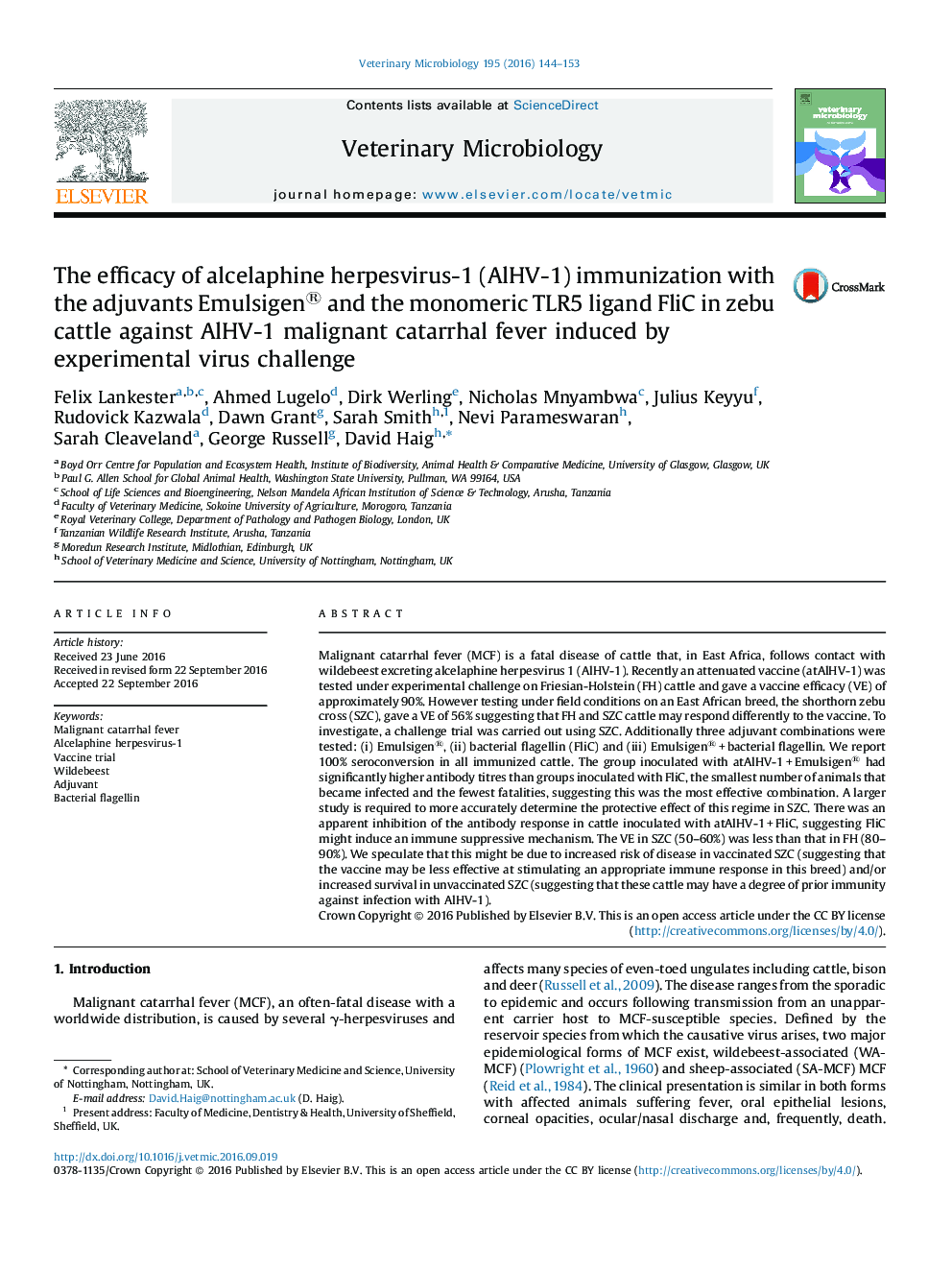| Article ID | Journal | Published Year | Pages | File Type |
|---|---|---|---|---|
| 8505776 | Veterinary Microbiology | 2016 | 10 Pages |
Abstract
Malignant catarrhal fever (MCF) is a fatal disease of cattle that, in East Africa, follows contact with wildebeest excreting alcelaphine herpesvirus 1 (AlHV-1). Recently an attenuated vaccine (atAlHV-1) was tested under experimental challenge on Friesian-Holstein (FH) cattle and gave a vaccine efficacy (VE) of approximately 90%. However testing under field conditions on an East African breed, the shorthorn zebu cross (SZC), gave a VE of 56% suggesting that FH and SZC cattle may respond differently to the vaccine. To investigate, a challenge trial was carried out using SZC. Additionally three adjuvant combinations were tested: (i) Emulsigen®, (ii) bacterial flagellin (FliC) and (iii) Emulsigen®Â + bacterial flagellin. We report 100% seroconversion in all immunized cattle. The group inoculated with atAlHV-1 + Emulsigen® had significantly higher antibody titres than groups inoculated with FliC, the smallest number of animals that became infected and the fewest fatalities, suggesting this was the most effective combination. A larger study is required to more accurately determine the protective effect of this regime in SZC. There was an apparent inhibition of the antibody response in cattle inoculated with atAlHV-1 + FliC, suggesting FliC might induce an immune suppressive mechanism. The VE in SZC (50-60%) was less than that in FH (80-90%). We speculate that this might be due to increased risk of disease in vaccinated SZC (suggesting that the vaccine may be less effective at stimulating an appropriate immune response in this breed) and/or increased survival in unvaccinated SZC (suggesting that these cattle may have a degree of prior immunity against infection with AlHV-1).
Related Topics
Life Sciences
Agricultural and Biological Sciences
Animal Science and Zoology
Authors
Felix Lankester, Ahmed Lugelo, Dirk Werling, Nicholas Mnyambwa, Julius Keyyu, Rudovick Kazwala, Dawn Grant, Sarah Smith, Nevi Parameswaran, Sarah Cleaveland, George Russell, David Haig,
